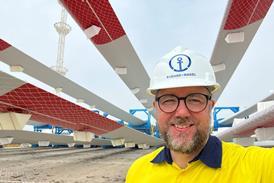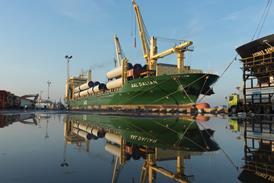July 12 - New resolutions on ballast water management and carbon dioxide emissions concluded the International Maritime Organization's (IMO) Marine Environment Protection Committee (MEPC) 71st meeting.
MEPC 71 saw a new implementation scheme for ballast water management (BWM) requirements, which requires compliance with the Ballast Water Management Convention standards at the first or second IOPP renewal survey after September 2017, subject to certain conditions.
This will allow existing vessels to continue operating without a retrofitted ballast water treatment system until as late as 2024, depending upon the particular timeline of their IOPP surveys - up to two years later than previously allowed, and twenty years after the Convention was first adopted.
MEPC has not yet adopted the new resolution, but it expects that the plan will be formally in effect by 2019. The resolution calls on all parties to acknowledge the revised timeline until it is officially in force.
The delay was not unexpected as multiple flag states had called for IMO to push back the implementation timeline for the BWMC.
It will no doubt come as a relief for some financially-pressed shipowners, but may also have implications for ballast water treatment system manufacturers, who could see reduced demand for their products in the near term.
MEPC did not adopt any specific goals or targets for shipping's future emissions of greenhouse gases, but it did note that its intercessional working group on greenhouse gas emissions has created a draft outline.
The strategy, referred to as the "Roadmap" for developing CO2 targets, would include three phases: first, the collection of fuel oil consumption data over the period from 2019-2021; second, a study to analyse this data; and third, "decision making on what further measures, if any, are needed."
Commenting on the outcome of the meeting, the International Chamber of Shipping (ICS) - which represents the world's national shipowners' associations - says that IMO has made a good start on the development of a CO2 reduction strategy which it is confident will match the ambition of the Paris Agreement on climate change, and that significant progress was made on the general outline of an initial strategy for adoption in 2018.
ICS has also welcomed the IMO decision to adjust the implementation dates of the IMO Ballast Water Management Convention saying that this is a victory for common sense that will allow shipping companies to identify and invest in far more robust technology to the benefit of the environment.

















